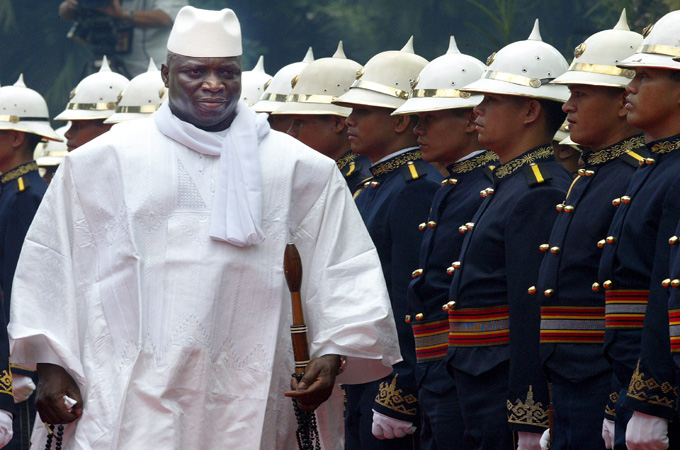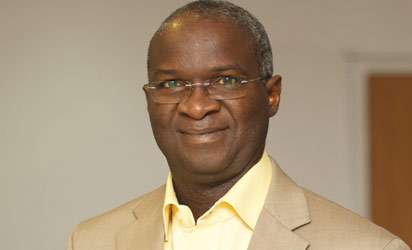By Francis Ikhianosime
“I cannot accept your canon that we are to judge Pope and King unlike other men, with a favourable presumption that they did no wrong. If there is any presumption it is the other way against holders of power, increasing as the power increases. Historic responsibility has to make up for the want of legal responsibility. Power tends to corrupt and absolute power corrupts absolutely. Great men are almost always bad men, even when they exercise influence and not authority: still more when superadd the tendency or the certainty of corruption by authority. There is no worse heresy than that the office sanctifies the holder of it.”
John Dalberg Acton (1887)
The Eighteenth-century English Parliamentarian, historian and writer; The Lord Acton as he is famously known, is perhaps most known for the quote “Power corrupts and absolute power corrupts absolutely”. The context in which John Acton wrote those indelible lines, is the question of how religious historians should handle the corrupt and even criminal behaviour of many supposedly elites, and the appalling treatment of dissidents and heretics during the inquisition. Acton advocated that the same moral standard should be applied to all, political and religious leaders alike. Acton remarked, that a time comes, when history would judge our actions and historians must give equal deal with the plebs as with the aristocrat, with the commoner as with the elite. The death of former Cuban President and Revolutionary leader; Fidel Alejandro Castro Ruz (1926-2016), reawakens the spirit behind Acton’s thought.
When the news of Fidel Castrol’s death was announced by his brother, Raul Castro on the November 25th, 2016, the world was thrown into mixed feelings. This is because, the late leftist anti-imperialist Politician was a man of many faces to the world. Some regarded him as a revolutionary legend; others knew him as a tyrannical dictator. Fidel had as many critics as supporters. From the streets to social media, reaction was swift that Cuba’s Fidel Castro, one of the 20th century’s most iconic and controversial political figures, who has perhaps survived over 600 assassination attempts yet lived to the ripe old age of 90, died.
Fidel’s death by some was a call for celebration. In Miami’s little Havana, there were spontaneous eruption of celebration by Cuban-Americans at the news of the leader in whom they knew as el monstruo- the monster. Many Cubans during the reign of Fidel were exiled. Over 1.5 to 2 million people fled their country during his reign, people were executed after kangaroo trials, and some lost 30 years in prison in his rise to power. This jubilation would have been by people who suffered the callous, vicious, ignominious and immoral path of Fidel’s rise to power. The Time magazine of January 29, 1959 ran her major story on Fidel Castro in what it captioned: “The Vengeful Visionary”. Fidel who had formed a rebel group called 26th of July Movement, wrestled power in a blood-spattered coup from the dictatorship of Fulgencio Batista. The ascension of the intrepid lawyer and activist was originally good news. But, power is sometimes, like a proverbial city that consumes its inhabitants; and like The Lord Acton puts it, absolute power corrupts. Fidel soon became an uncompromising and cold-blooded ruler who in a bid to bring justice to those oppressed, violated not only human right of prisoners but he became a law unto himself. The biggest bloodletting took place one morning at Santiago’s Campo de Tiro firing range, in sight of the San Juan Hill. A bulldozer ripped out a trench of 40ft long, 10 ft, wide and 10ft. Deep and over a 100 prisoners were fired into it before noon.
Time Magazine captured this story thus: “The world looked on, tried to understand the provocation, boggled at the bloodshed. Uruguay’s U.N. delegate, Argentina’s Cuban ambassador, liberal U.S. Senator Wayne Morse, all protested. Puerto Rico’s Governor Luis Munoz Marin was “perturbed.” Castro’s answer: “We have given orders to shoot every last one of those murderers, and if we have to oppose world opinion to carry out justice, we are ready to do it.” “. Thus, Little Havana’s celebration was reminiscences of those ghastly days. United States President-Elect, Donald Trump tweeted: “Fidel Castro’s legacy is one of firing squads, theft, unimaginable suffering, poverty and the denial of fundamental human rights. While Cuba remains a totalitarian island, it is my hope that today marks a move away from the horrors endured for too long, and toward a future in which the wonderful Cuban people finally live in the freedom they so richly deserve.” But this is not all to the former communist leader.
Far from the pockets of jubilations by Cuban exiles, other world leaders remember Fidel Castro differently. Fidel Castro was a long-time ally to the Soviet Union. The ties with the Soviet Union were formed, when Castro wanted to counter the United States opposition to his government. In response to the US nuclear missiles in Turkey and the perceived US threats against Cuba that Castro allowed the Soviets to place nuclear weapons on Cuba, sparking the Cuban Missile Crisis and which became a defining incident of the Cold War in 1962. At his death, 52 years later, Russian President, Vladimir Putin, a nation which was a former bloc of the defunct Soviet Union sent a telegram in which he called Fidel Castro “a sincere and reliable friend of Russia”. Indian Prime Minister, Narendra Modi regarded Castro as “the most iconic personalities of the 20th century”. Chinese Xi Jinping praised Fidel Castro’s “immortal historical contribution to the development of socialism around the world”. UK. Labour leader, Jeremy Corbyn called Fidel a “huge figure in our lives. From all his flaws, Castro’s support for Angola played a crucial role in bringing an end to aparthied in South Africa and he will be remembered both as an internationalist and a champion of social justice”.
With the death of Fidel Castro, it opens a new reading on the struggle of revolutions. The lesson of Fidel with its enormous contributions is that history judges him as pursuing a good cause with wrong means. This is the challenge for morality. Revolutions without morality or principle are as bad as the injustice or injury being rebelled against. Castro’s death challenges us that politics must not be about the end, while we undermine the means. Good-intentioned as his policies were, the process was as important as the result. The death of Castro should open world leaders to know that, aggressiveness sometimes does not bring about effectiveness. One can be politically aggressive, yet not positive.
The death of Castro again opens us that World Leaders must know that power is the most venal of all endowments. In the mechanics for achievements of power, there is a certain malignancy that must be wary of, and the greater the power, the greater the malignancy. In the life of Castro, we saw a man, who moved from a leader to a ruler, from a revolutionary to a dictator, and from a enjoying a towering approbation to suffering a torrential abhorrence. The death of Castro should teach world leaders to draw on a caution bottom, when they seem to amass more power, for the more powerful one becomes, the more absorbent he is to its menacing vestiges.
There is a lesson in history we can infer again. Power holders must know and understand that, they may enjoy some immunity while in office, but the adjudication by history has no immunity. History would outlive our office, but no political office holder can outlive history. This should make political office holders to dance to the same rhythm of drums that brought them to power, while they are in power, and not dance to a different drums or pipers. The government of the day is no doubt dancing to a different drum that piped them to power. The John Acton aphorism that power corrupts is to the telling truth that there is a consuming side of power, while it delights too. In a letter to Bolingbroke in 1729, Jonathan Swift had this to say: “I will venture all I am worth that there is not one human creature in power, who will not be modest enough to confess that he proceeds wholly upon a principle of corruption.” Even Shakespeare makes Brutus to say in ‘Julius Caesar’: “The Abuse of greatness is when it disjoints Remorse from Power”. The arising synopsis is, those in power should use power for what it is, and not allow power use them.
We join all world leaders to commiserate with the Cuban government on the death of a revolutionary leader, one, whose history is synonymous with Cuba. His death and the unprompted revelries that erupted at his death, should alert today’s leaders that the end does not just justify the means, the means is as important as the end. And as Mahatma Gandhi puts it, that politics without principle is not just a social sin, but a political misnomer. This should sternly remind power managers that history would certainly give an account of their stewardship, not with the immunity of kings, but with the perviousness of commoners.
*Francis Ikhianosime is a priest of the Diocese of Auchi and the National Secretary of the Nigeria Catholic Diocesan Priests’ Association. He writes via: franklmore@yahoo.com


